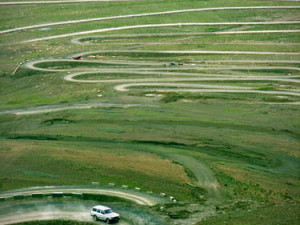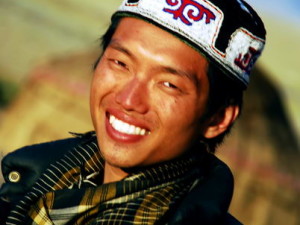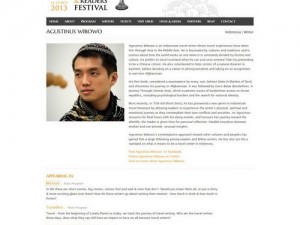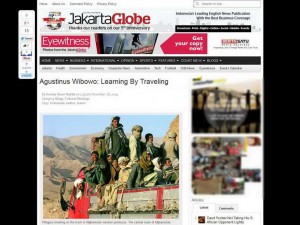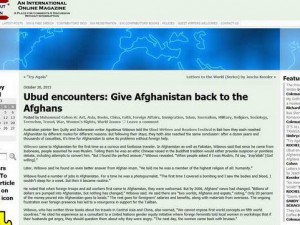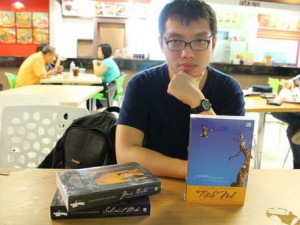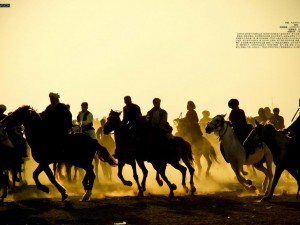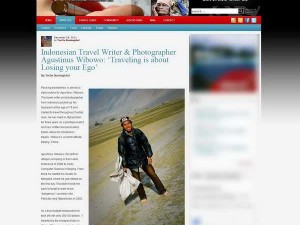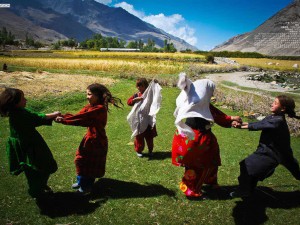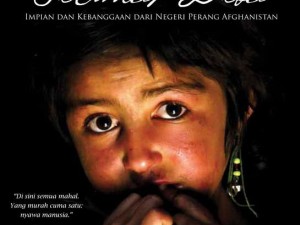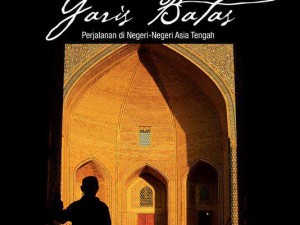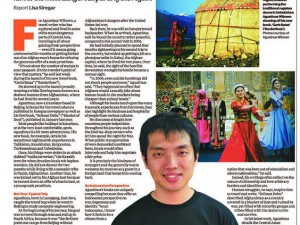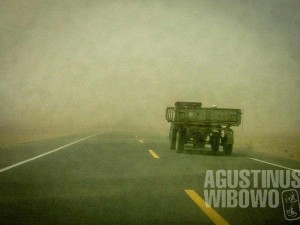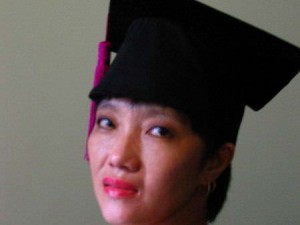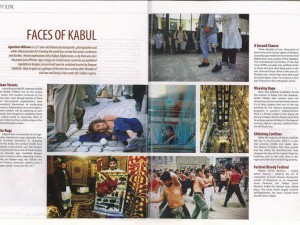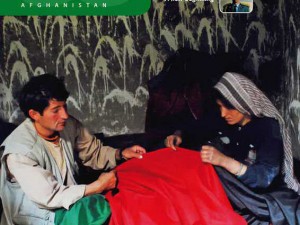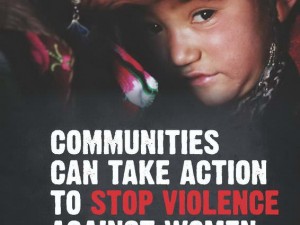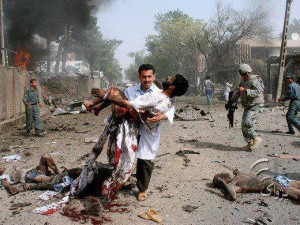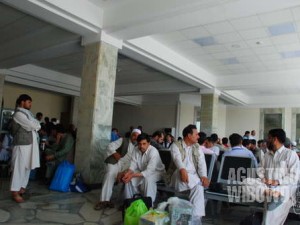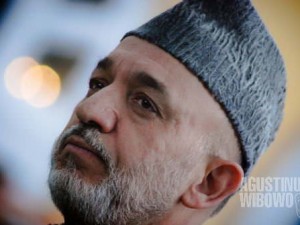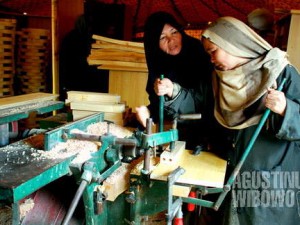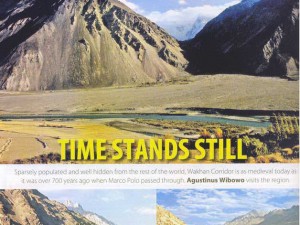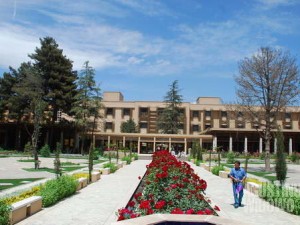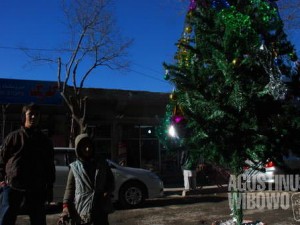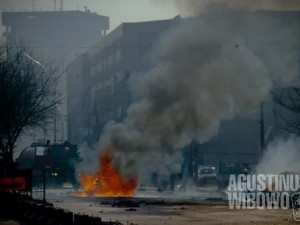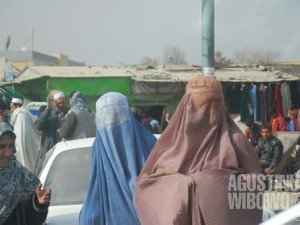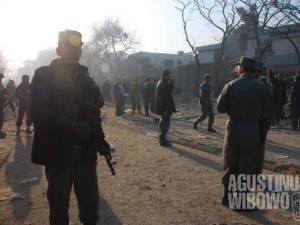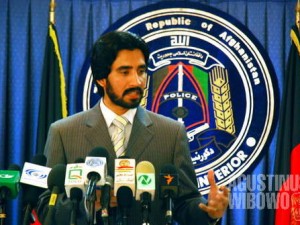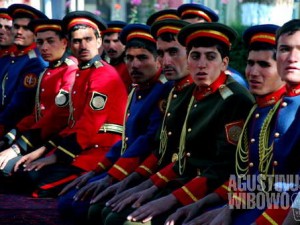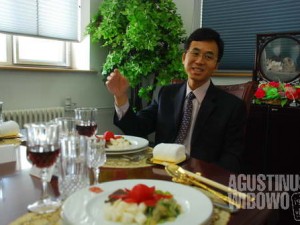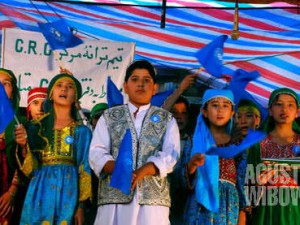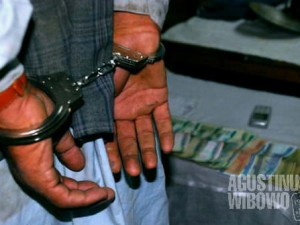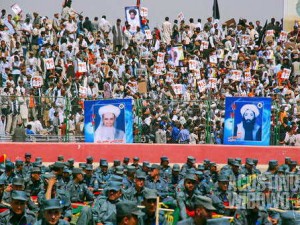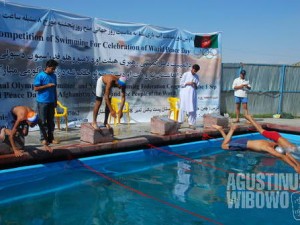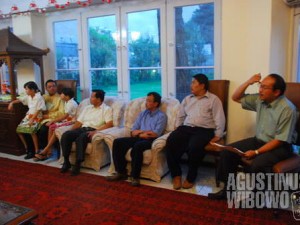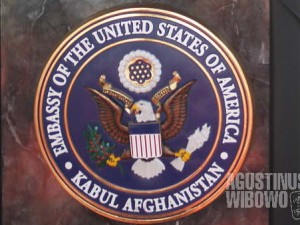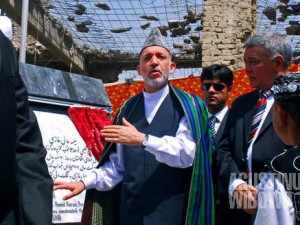Afghanistan
Exactly ten years ago, I started my four-year overland journey. I started from Beijing with $2000, dreaming to reach South Africa. From an illegal visitor to Tibet until a journalist in the war ridden Afghanistan, this journey has changed my whole life. Today, I’m back to Beijing, my point zero. But journey is a point of no return; I’m not the same person anymore and my point zero is not the same either. That’s indeed a journey of life. 正好十年前的今天,我开始了我漫长的陆路旅行。当时的我拥有2000美元,梦想着从北京出发一直达到南 非。偷渡入西藏到在阿富汗当战地记者,每一步都决定了我的今天。如今我回到北京,回到我的零点,但我相信旅行改变了人生,我已经是不一样的人了,那个零点 [read more]
[旅行家Traveler] :瓦罕走廊天堂何处
旅行家2015年4月期 阿富汗的风筝 说其遥远,其实并不准确。地图上,阿富汗甚至有一角领土与中国比邻,那一条狭长的通道就是本期专题的主打目的地——瓦罕走廊。 瓦罕走廊天堂何处 策划 | 本刊编辑部 执行 | 邓丽颖 程婉 特约撰稿人 | Agustinus Wibowo 翻译 | 黄文静 肖若琳 十 多年前,我第一次去阿富汗旅行,在这个战争的伤疤无处不在的国度,一位旅行者告诉我,在阿富汗有一处“隐藏的天堂”。那是我第一次听到瓦罕走廊的名字。翻 看地图,它像是海底深处一条狭长的裂隙,北抵塔吉克斯坦,南至巴基斯坦,东临中国。这是世界上最偏远国家之中的最偏远的地方之一。然而,在几世纪前,瓦罕 走廊却是连通中国和西域各国,那条繁华的丝绸之路的一部分。 [read more]
行李︱Agustinus:在阿富汗的3年里……
2015-05-15 行李 他是堪比奈保尔的著名作家,曾以最艰苦的方式在阿富汗生活3年,深入人迹罕至的瓦罕走廊,并游历中亚5国所有边界地区,现正采访印尼数百个岛屿的神秘故事。 (Augustin Wibowo在帕米尔高原) 行李&Augustin Wibowo 行李:你最近刚参加完伦敦书展? Augustin :是,印尼是今年法兰克福书展的主题国,所以印尼出版界推荐了很多本国作家到世界各地参加书展。伦敦书展是世界第二大书展,我是作为印尼游记文学的作家代表去伦敦演讲,介绍印尼游记文学的情况。 行李:在国外,游记文学已经单独作为一个门类了吗? Augustin :在 英国是这样。英国在游记文学方面是全世界最发达的,已经有几百年历史,英国人很早就开始到世界各地游历,游记文学在英国已经变成一个门类,这个是他们文化 [read more]
[Audio] UWRF13: Reflections of Afghanistan
Ubud Writers and Readers Festival 2013 Reflections of Afghanistan : Ben Quilty, Agustinus Wibowo & Michael Vatikiotis Forgotten wars & forgotten people. Hear from two individuals who have made the journey to Afghanistan to record the lives of the people there through their images. What does it look like through their eyes? Indus, 15 October 2013 http://www.ubudwritersfestival.com/audio/reflections-of-afghanistan-ben-quilty-agustinus-wibowo-michael-vatikiotis/ Featuring: Ben Quilty Ben Quilty has been widely recognised for his artwork. Quilty’s paintings of his Holden Torana produced a sell-out show in 2002 and since then his work has been seen in many exhibits and art fairs. Some of his work can be seen at the Art Gallery of New South Wales and the Museum of Contemporary Art. Quilty won the Doug Moran Portrait Prize in 2009 for his painting Jimmy Barnes, ‘There but for the Grace of God Go I, no.2′. In the same year Quilty was named runner up in the Archibald Prize [read more]
Jakarta Globe (2013): Learning By Traveling
http://www.thejakartaglobe.com/blogs/agustinus-wibowo-learning-by-traveling/ Agustinus Wibowo: Learning By Traveling By Annisa Dewi Yustita on 1:36 pm November 28, 2013. Category Blogs, Cultural Musings Tags: Indonesia author, travel Villagers traveling on the truck in Afghanistan western provinces. The central route of Afghanistan connecting Herat to Kabul is unpaved for about 900 km. (Agency Photo) Traveling is more than just spending time in a particular place. On a deeper level it enables us to learn many things from our destination, such as the language, culture and its people. Agustinus Wibowo is an Indonesian travel writer whose travel experiences have taken him through Asia and the Middle East. He said that he was fascinated by the world’s cultures and traditions and was curious about how the world works despite its historical and cultural divisions. Agustinus started his journey going around Asia with just US$2,000 from his savings during his study at [read more]
Speak Without Interruption (2013): Give Afghanistan back to the Afghans
http://www.speakwithoutinterruption.com/site/2013/10/ubud-encounters-give-afghanistan-back-to-the-afghans/ October 20, 2013 Ubud encounters: Give Afghanistan back to the Afghans Posted by Muhammad Cohen in: Art, Asia, Books, China, Faith, Foreign Affairs, Immigration, Islam, Journalism, Military, Religion, Sociology, Terrorism, Travel, War, Women’s Rights, World Issues Australian painter Ben Quilty and Indonesian writer Agustinus Wibowo told the Ubud Writers and Readers Festival in Bali how they each reached Afghanistan by different routes for different reasons. But following their stays, they both also reached the same conclusion: after a dozen years and thousands of casualties, it’s time for Afghanistan to solve its problems without foreign help. Wibowo came to Afghanistan for the first time as a curious and footloose traveler. In Afghanistan as well as Pakistan, Wibowo said that since he came from Indonesia, people assumed he was Muslim. Telling them he was an ethic Chinese [read more]
Surabaya Highlight (2013): How Much Are You Willing to Let Go?
19 April 2013 Surabaya Highlight http://surabayahighlight.com/highlights-of-the-week/newcomers-in-town/third-cultured/how-much-are-you-willing-to-let-go How Much Are You Willing to Let Go? Surabaya – “There’s no end to traveling, it is all about how well we understand places that we have visited,” an afternoon talk during lunch with Agustinus Wibowo is such an eye opener for lucky Surabaya Highlight. Agustinus Wibowo is a travel writer and freelance journalist that was born and raised in Lumajang, East Java. In his short visit to Surabaya, he agreed to meet us and share his inspiring life to Surabaya Highlight’s readers. Coming from a small town of Lumajang, Agus had a dream to someday see the world outside his hometown. “Children would run around screaming to a plane passing by. I always watch Dunia Dalam Berita, because that was the only chance I had to see the world since there was no internet or other programs,” his vivid explanation made us picturing how it [read more]
Traveler【旅行家】(2012):视觉
马背叼羊是阿富汗的国民运动,也深受中亚国家如乌兹别克斯坦、塔吉克斯坦、吉尔吉斯斯坦、哈萨克斯坦、土库曼斯坦的欢迎,多在冬季举行。这种运动类似于马球,但使用的球是无头的牲畜尸体。最大的国家级马背叼羊比赛是在阿富汗的马扎举行的。新年22日这天,标志着冬天的结束,春天的开始。比赛时,骑手通常身穿厚衣服、佩戴头套、脚踏靴子、手持皮鞭。靴子通常带有高跟,紧锁入与马鞍连接的脚踏处,这样有助于骑手倾斜到一侧拾取小牛。马背叼羊运动显示了阿富汗精神:勇气、骄傲、虔诚、公平竞争、力量、耐力、阳刚之气等。人们认为一个好的马背叼羊球员宁愿勇敢地死去,也不懦弱地活着。
Latitude.nu (2011): ‘Traveling is about Losing your Ego’
December 29, 2011 http://latitudes.nu/indonesian-travel-writer-photographer-agustinus-wibowo/ Indonesian Travel Writer & Photographer Agustinus Wibowo: ‘Traveling is about Losing your Ego’ By: Yvette Benningshof Passing borderlines is almost a daily routine for Agustinus Wibowo. The travel writer and photographer from Indonesia picked up his backpack at the age of 19 and started to travel throughout Central Asia. He has lived in Afghanistan for three years as a photojournalist and has written two bestsellers books about his borderless travels. Wibowo’s current latitude: Beijing, China. Agustinus Wibowo (30) left his village Lumajang in East-Java, Indonesia in 2000 to study Computer Science in Beijing. From there he started his travels to Mongolia where he got robbed on the first day. That didn’t hold him back to travel to even more ‘dangerous’ countries like Pakistan and Afghanistan in 2003. As a true budget backpacker he took off with only 300 US dollars. ‘I [read more]
Traveler【旅行家】(2011):视界
位于阿富汗东北部的瓦罕走廊是一个狭长地带,主要居住着Wakhi人,他们讲Wakhi语,并信奉伊斯兰教。与大部分阿富汗穆斯林相比,Wakhi人是相对温和的。这里的女人无须终日蒙面,可以自由地谈论异性。他们的生活主要依靠农业和畜牧业。每天,孩子们会以自己所在的村子为单位,在一起给牲畜喂食青草。在这里,经常能够看到成百上千的牛羊聚合着穿过高山和草原,而孩子们则在平原上等待着牛羊被牧民们带回来。
A Blanket of Dust—New Edition
My first book, A Blanket of Dust (Selimut Debu) is going to be republished with new cover and new photos, to be launched by Gramedia Pustaka Utama this coming 29 September 2011. [Agustinus] tak ingin hanya menjadi penonton isi dunia. Ia mau terlibat sepenuhnya dalam perjalanan itu. Ia tak sekadar melihat pemandangan, berpindah dari satu tempat ke tempat lain, tetapi juga mengenal budaya dan berinteraksi dengan masyarakat setempat. –Kompas– Afghanistan. Nama negeri itu sudah bersinonim dengan perang tanpa henti, kemiskinan, maut, bom bunuh diri, kehancuran, perempuan tanpa wajah, dan ratapan pilu. Nama yang sudah begitu tidak asing, namun tetap menyimpan misteri yang mencekam. Pada setiap langkah di negeri ini, debu menyeruak ke rongga mulut, kerongkongan, lubang hidung, kelopak mata. Bulir-bulir debu yang hampa tanpa makna, tetapi menjadi saksi pertumpahan darah bangsa-bangsa, selama ribuan tahun. Aura petualangan berembus, dari gurun gersang, gunung salju, padang hijau, lembah [read more]
Garis Batas – Perjalanan di Negeri-Negeri Asia Tengah (Borderlines)
My second published travel writing book, on journey to Central Asian countries (The “Stans”). Indonesian language. Borderlines – Journey to the Central Asian States Everyday, Afghan villagers stare to “a foreign country” which is just a river away. They look at passing cars, without even once experiencing sitting inside the vehicles. They look at Russian-style villas, while they live in dark mud and stone houses. They look at girls in tight jeans, while their own women are illiterate and have no freedom to travel. The country across the river seems magnificent—a magnificent fantasy. The same fantasy brings Agustinus Wibowo travel to the mysterious Central Asian states. Tajikistan. Kyrgyzstan. Kazakhstan. Uzbekistan. Turkmenistan. The “Stan brothers”. This journey will not only bring you step on snowy mountains, walk accross borderless steppes, adsorbing the greatness of traditions and the glowing Silk Road civilization, or having [read more]
The Jakarta Globe (2011): An Indonesian’s Lust for Asian Travel
An Indonesian’s Lust for Asian Travel Lisa Siregar | May 26, 2011 http://www.thejakartaglobe.com/lifeandtimes/an-indonesians-lust-for-asian-travel/443364 For Agustinus Wibowo, a travel writer who has explored and lived in some of the most dangerous parts of Central Asia, traveling is all about gaining fresh perspectives — even if it means going unshowered for months or getting kicked out of an Afghan man’s house for refusing the generous offer of a male prostitute. “It’s not about the number of stamps in your passport. It’s the traveler’s point of view that matters,” he said last week during the launch of his new travel book, “Garis Batas” (“Borderlines”). He showed up to the launch proudly wearing a white flowing tunic known as a shalwar kameez from Afghanistan, where he had lived for several years. Agustinus, now a translator based in Beijing, is famed for his travel columns published in Kompas newspaper as well as his first book, “Selimut Debu” [read more]
My First Book, “BLANKET OF DUST — SELIMUT DEBU” is Launched in Indonesia
Finally…. after long time of editing and rewriting, and editing again, and rewriting again, (I already have lost count about the process), my first travel narrative book will be launched by Gramedia Pustaka Utama, one of the leading publishers in Indonesia, by January 12, 2010. This book is about Afghanistan, based of my travel around the country by hitchhiking in 2006, but the contents are enriched with my contemplation after my two and half year stay in Afghanistan as a journalist. The first edition is in Indonesian, but hopefully an English version will come out soon as well. ——————————————– http://www.gramedia.com/buku_detail.asp?id=KAHI4419&kat=4 Selimut Debu – Agustinus Wibowo 468 halaman Rp69.000,- Dilengkapi foto-foto berwarna. No GM 40101100002 ISBN: 978-979-22-5285-9 Pada tahun 2006, Agustinus mulai melintasi perbatasan antar negara menuju Afghanistan, dan selama dua tahun ia menetap di Kabul sebagai fotografer jurnalis—catatannya [read more]
Mashhad – The Empty Border
The dusty border Two years ago, when I came to Iran for the first time through the Islam Qala border, I was astonished by the scene of hundreds of wild Afghan men fighting to pass the border line, to quit their homeland and reach hope in rich Iran. But now, it’s not anymore the scene. The Afghan-Iranian border in Islam Qala is quite empty. Iran has tightened up the visa approval for Afghans. Land crossing is no more permitted for ordinary Afghans. The Iranian visa from Kabul is mostly stamped “For Air Travel Only”, putting them to obtain roundtrip ticket only with Iranian airlines. In some cases, visa applicants need to spend at least 1000 dollars just to get the entry visa. Indeed, one’s passport determines his or her fate. I arrived in Afghan immigration hall after 100 meter walk. People are sitting idly to wait for the officers come back from their lunch break. There are three officers behind the table. One is examining the passports, one is stamping, and the last one is [read more]
Kabul – End of Journey?
Mama, wearing my academic dress. She did not finish her primary education, as the school was forced to close by the Suharto regime. But her dream is to learn, learn a lot, and be a real university student The last few weeks were very difficult time for me. Once my dad called from Indonesia, “Your mom is going to have an operation. Please pray for her.” It’s very unlikely that my mom gets sick, as my mom is a very active woman, doing physical exercise almost on daily basis. In late few years I have never heard she fell into serious sickness, even for once.The news was not too good. It turned out to be tumor, cells which grow abnormally. It sounds not so serious, my mom just complained of pain in her abdominal. Operation was conducted. It’s not a simple tumor. Doctor said it was malignant tumor, euphemism of saying ‘your mom got cancer’. My mom ovary was lifted. The next diagnosis saying that the cancer has spread to her intestine, and they claimed my mom got a Stage-3C [read more]
Jakarta Post Weekender (2009): Face of Kabul
http://www.thejakartapost.com/news/2009/01/29/faces-kabul.html THE WEEKENDER JAKARTA POST: Face of Kabul The Jakarta Post – WEEKENDER | Thu, 01/29/2009 8:00 PM | City Scene Agustinus Wibowo is a 27-year-old backpacker, photographer and writer whose passion for traveling the world has carried him across continents and borders. Recent explorations led to Kabul, Afghanistan, a city that was once the proud son of Persia. Agus’ essays on Central Asian countries are published regularly on kompas.com and will soon be serialized in print by Kompas Publisher. Here he gives us a glimpse of the war-torn country after decades of civil war and living in fear under the Taliban regime. Mean Streets According to UNICEF, between 50,000 and 60,000 children live on the streets of Kabul. The number continues to rise every year, even though dozens of local and international organizations have committed themselves to eradicating poverty in Afghanistan’s war-torn regions. These children will do [read more]
Gender Corridor Afghanistan (2008): A New Beginning
Gender Corridor Afghanistan, November 2008 “Gender Corridor Afghanistan” is the publication of Gender Equality Project of UNDP Afghanistan. A NEW BEGINNING Armed men loyal to brutal Afghan warlords set up checkpoints and take what they want – including helpless young girls. Women are often raped before being given or sold to whoever desires a bride. Some who survive and escape can no longer live with their ordeal. They douse themselves in gasoline and set themselves ablaze. “Who can say ‘no’ to a war commander?” asks Naseera Shafi, 26, the Regional Office Coordinator for UNDP’s Afghanistan New Beginnings Programme (ANBP) in the northern Afghan city of Mazar-e-Sharif. “They have guns and power. They do whatever they want. When they see a beautiful girl, they may kidnap her and force her to marry …. It’s not uncommon for a young girl to marry an old man under these conditions,” Naseera says. The ANBP aims to create new opportunities for peace and security in the [read more]
UNDP Gender Equality Posters (2008)
Photos I took in Badakhshan and some other parts of Afghanistan are used for publication posters of Gender Equality Project of UNDP Afghanistan, October 2008. WOMEN, PEACE AND SECURITY IN AFGHANISTAN AFGHANS WORKING TOGETHER FOR PEACE AND DEVELOPMENT COMMUNITIES CAN TAKE ACTION TO STOP VIOLENCE AGAINST WOMEN Posters are designed by Inis Thailand. [read more]
Bomb in front of Indonesian Embassy in Kabul
I am not in Kabul at this moment, but was very much shocked to read a friend’s SMS: Bomb outside of Indian and Indonesian embassies in Kabul. Casualties. All Indonesian friends are safe. Building damaged. Later, I read more on the Internet. The bomb happened at 8:25 a.m., the busy hour when dozens of visa applicants queueing in front of the Indian embassy. The Indonesian embassy was not the target, but unluckily it was located right next to the Indian embassy. The location is on sensitive area of Ministry of Interior street, heavily guarded everyday during office hours as a deadly bomb blast in 2006 here. On the same street is also the Pajhwok Afghan News Office, where I used to live in Kabul. Here is a photo of the scene after the bomb blast, taken by photographer colleague of Pajhwok, Ahmadullah Salemi The deadly bomb blast At the right side, far behind, the white building is the Indonesian embassy. Despite of the worsening security in Kabul, the embassy still puts its office [read more]
Kabul – Welcome to Ariana Flight
The boarding room of Kabul International Airport. Everybody is ready to fly … The first encounter with Ariana – the Afghan national carrier – is not always thrilling. It might be a unique experience from the Afghan land. In last several months I have been working as a consultant for UN. This, more or less, has changed my preference in traveling. Probably I got spoiled already with those amenities, facilities, and luxuries. Today, the first day of me turning back to be a backpacker again, I feel a sudden shock. Usually I prefer to take overland trip, but this time, on my way going to Iran for a short holiday to change the routine in Kabul, I chose to fly Ariana. The Kabul – Herat’s 1000 kilometer distance can be reached through three different routes. The northern route, through Mazar-e-Sharif, takes at least four days, killing unpaved road full of dust of the desert Dasht-e-Laila at the end of its leg. I have experienced this in 2006 and am not so keen to try again. The [read more]
Kabul – Assassination Attempt
He has managed to escape several assassination attempts. Who knows what happens next. Since the beginning of 2008, there had not been any big incidence in Kabul yet, until today, when the government and people of Afghanistan was proudly celebrating the victory of the Holy War, to commemorate the withdrawal of Russian troops. I did not go to the scene myself, as the program is restricted to accredited journalits (I am now a freelancer), but some colleagues from Pajhwok went there for reportage since early morning. Nobody expected that the yearly military parade turned to be assassination attempt to President Karzai, and the attack turned bloody. Some TV cameramen and photographers lost their cameras amid the chaos. Here is the updated news: http://www.bloomberg.com/apps/news?pid=20601087&sid=atvXzZBpxTPI&refer=home ——————– Afghanistan’s President Karzai Is Safe After Attack (Update1) By Jay Shankar April 27 (Bloomberg) – Afghanistan President Hamid Karzai and [read more]
Kabul – Women Carpenters from Afghanistan
Woman carpenters from Dasht Barchi. Most if not all of them are Hazaras. Most people believe that carpentry is a man’s trade, but for the 60 carpentresses of Kabul’s Dasht-e-Barchi district, it simply isn’t true. “Women are able to do all kinds of work that men do,” they proclaim proudly. Hidden among mud houses which sit idly off of the main road, the center for carpentry is a local shura (council) where women learn about basic carpentry and build various items from cupboards, tables, computer desks, chairs to sandalis (heaters). A middle-aged woman is too happy to take me to the production center, where everything seems to happen all at once, located inside a small hut. “See, we are now able to handle heavy machinery,” she points out to several woodworking equipments that are modern-looking, where two or three women work in tandem to produce wood chops or create nail punctures and screw holes. Nails, chisels, hammers, sawing machines, screwdrivers are as familiar to [read more]
Jakarta Post Weekender (2008): Time Stands Still
http://www.thejakartapost.com/weekender/0801beyond.asp BEYOND BORDERS: Time Stands Still Sparsely populated and well hidden from the rest of the world, Wakhan Corridor is as medieval today as it was over 700 years ago when Marco Polo passed through. Agustinus Wibowo visits the region. The awkward tongue of Afghanistan, located at the northeastern tip of the country, is a 200-mile-long valley that stretches between Tajikistan and Pakistan. A strategic territory created by the once-reigning British Empire at the end of the 19th century, Wakhan Corridor was first attached to Afghan territory as a buffer zone between Britain and Russia. Though the battle for supremacy between the two giants has long ended, little seems to have changed since then. Time has been suspended for what seems like eternity. Deprived of the comforts of modern living, Afghans tend to paint rosy images of Tajikistan, where women are not required to wear the burqa and children receive the education they deserve. [read more]
Taliban Attack on Luxury Hotel in Afghan Capital Kills Eight
The luxurious, five star Serena Hotel. With such heavy tiered security system, who expects this hotel can be attacked? http://www.bloomberg.com/apps/news?pid=20601087&sid=akrH72vAed8I&refer=home Jan. 15 (Bloomberg) – Taliban insurgents killed as many as eight people in a suicide bomb attack on a luxury hotel in the Afghan capital, Kabul, where Norwegian Foreign Minister Jonas Gahr Store was hosting a meeting. A Norwegian journalist accompanying the foreign minister and a U.S. citizen were among those killed in yesterday’s bomb- and-gunfire assault at the Serena Hotel. Store was uninjured, United Nations Secretary-General Ban Ki-moon said. The assault is a “serious crime against humanity,’’ Ban told reporters in New York. Store was the target of the attack, he said, without elaborating. Suicide bombings in Afghanistan have risen sevenfold over the past two years and Taliban fighters are increasingly carrying out attacks in the capital. The assault may signal a [read more]
Kabul – Shocked
Benazir Bhutto I was terribly shocked by the unexpected news of the assassination of Pakistani Former Prime Minister, Ms Benazir Bhutto. A friend from the UN called me, “Hey, have you heard about Benazir Bhutto? She was shot dead.” “Are you joking?” It was serious, a fact which I really didn’t want to believe. Benazir was shot three times in a political rally in Liaquat Bagh in Rawalpindi, somewhere I used to stay two years before. I couldn’t believe that Pakistan, which I used to love because of the people’s extreme hospitality, turn to boiling hell. I remembered, sometime in winter 2005, in a village in northern Karakoram Mountains, a vertical tricolor flag was hoisted on a pole on top of a house. Black-red-green. “Is that flag of Afghanistan?” “No. That’s flag of PPP,” explained an old villager, “Pakistan People Party. That’s the party of Benazir Bhutto. We loved her very much.” I remembered, deep in Thar Parkar desert town of Umerkot, a Hindu friend [read more]
Kabul – Christmas in Kabul
Christmas trees in Kabul streets, who expected? In devout, conservative Islamic Republic of Afghanistan, Christmas is just like another day. It’s an ordinary day when people go to office, children go to school, and nobody is aware of what Christmas is. But since last some few years, the Christmas trees start to decorate the Kabul again. It is in the Flower Street, across the rows of foreigner-oriented souvenir shops of Chicken Street, where most flower shops in Kabul are located. Christmas trees, considered as variation of flowers, along with Christmas accessories like stars, Santa Claus, colorful ribbons, et cetera, are offered in the roadside of the narrow alley. It is indeed a bizarre combination between the artificial Christmas trees, mostly imported and costs around US$25, with women clad in blue burqas passing by. Under Taliban, said Muhammad, a shop owner, selling Christmas trees was totally prohibited. But he claimed that the Christmas trees were already available in Flower [read more]
Kabul – Rocked by Rockets
Rockets rocking the capital An early morning in Kabul was rocked when sound of blasts reverberated throughout the capital. 8:20 A.M. I heard a blast, sounds very near. Not as loud as a bomb blast, and even initially I thought it was a car incident. The second blast came afterwards. It was not at all car incident, but rocket attacks toward the Kabul police headquarters about a block away from where I am working. A reporter and I immediately ran to the site. A big fire was seen on the emptied road. The police tried hard to seal the area from onlookers and prevented the journalists, photographers, and cameramen to get closer. “The attacker is still here,” said a police, “he is running away and we are looking for him. It’s very dangerous.” Police is quick in cleaning up the debris The road is messy. This area was full of street hawkers and in the morning it was very busy of people shopping. I saw many shoes and sandals, offered at roadside, left away by the scared owners. The [read more]
Kabul – Give Us Women
For every victim, they want seven women as compensation. A journalist friend of mine just returned back from Taliban stronghold southeastern province of Paktika. He recounted to me his amazing experience in the surreal region. Mud-houses disappear in the capital, Sharana, because of the constructions of new modern buildings. Mud houses in the districts also disappeared, due to another reason. In this area security is just an empty talk. For security reason in Taliban controlled district, one at least should be Pashtun, bearded, and dress in turbans. But that’s not everything. Being non-local anyhow is dangerous. And my friend was just lucky to be able to drag a local to rent a car and bring him to the districts near Pakistan border. It was a near-to-death journey. The police were surprised to see this Kabuli Pashtun came to this off-limit region. He was so anxious because Taliban was still everywhere. Anybody here can be Taliban, because everybody looks the same – bearded, [read more]
Kabul – Rocket Rains
Winter is usually quiet months of bomb attacks. But it seems the formula does not work for this year. This week is the worst of this year in term of security in the capital. In recent days there had been several fatal bomb blasts all over the capital. It had been part of the daily life here. On November 27, when I was just walking on the street from the Afghan bodybuilding about 7:30 a.m, suddenly I heard a big blast. I am already used to this kind of blast or that kind of rocket rocks; I usually had no any more surprised reaction to this kind of happening. But I usually stay in my room when all of these things happened – in a safe place. Now, I am on road and the blast was heard much louder and shocking. I ran for some steps, but became completely normal again not more than a minute after. The blast happened somewhere near the Pakistan embassy, about 4 kilometer from the place I initially heard the blast. The target was a military vehicle in heavily secured area of Wazir Akbar [read more]
Kabul – A Failed Mission
http://www.foxnews.com/story/0,2933,312183,00.html A planned attack launched from Pakistan has been foiled, says the spokesman of the ministry. Afghan security forces, meanwhile, arrested a potential homicide bomber as he attempted to board an army bus in Kabul, Interior Ministry spokesman Zemeri Bashary told reporters. Authorities have been wary of attacks targeting army or police buses in Kabul after two such attacks this year. The attacker was from the Pakistani city of Peshawar, Bashary said. Afghan and Western officials say many homicide bombers are trained in neighboring Pakistan and then cross the border into Afghanistan to carry out their attacks. An Afghan soldier kicked the man as he tried to board the bus, and when the attacker fell down, he was unable to detonate his suicide vest, said Kabul police chief Mohammad Salim Hasas. The officials displayed the defused suicide vest for the media and said the attacker was undergoing blood tests because he appeared to be under the [read more]
Kabul – Eid Mobarak
Afghan guards offer prayers in the Presidential Palace People were waiting with anxiety yesterday: whether they had finished their Ramadan fasting or they had to keep fasting one another day. Not until 10 p.m. Kabul time the decision was announced: Eid to be on Friday. President Hamid Karzai offers his Eid prayers in the mosque inside presidential palace compound. These years, as the security situation in Kabul is worsened, it is not wise if the President prays in public place. Two years ago the President still had his Eid prayers in Pul-i Khisthi mosque together with his people. But now any ceremony attended by the President will mean the arrival of armed bodyguards, area sterilization with the security dogs (it was introduced by the Americans to the Islamic Republic of Afghanistan), some helicopters patrolling around, and tightened security on all main roads. Letting the President to pray in public mosque under current situation is too much risky. This resource and energy wasting, [read more]
Kabul – A Lunch in Chinese Embassy
The grand complex of Chinese embassy. Not big enough? This is just one among dozen of buildings in the complex. It’s grand. It’s just like a Chinese garden from the Middle Kingdom being transported to the middle of dusty Kabul. Mr. Yang, Mr. Li, and Mr. Yu were waiting outside the grand embassy building with strong Chinese-style architecture. Mr. Yang is the ambassador, Mr. Li is the counselor, and Mr. Yu is the protocol staff. They have been waiting for about 30 minutes. We came very late, due to jammed Kabul traffic. And we, two women and two men, felt very much embarrassed. How suddenly an ordinary man like me being invited to have lunch with his Excellency Chinese Ambassador? In a diplomatic function held for the Indonesian National Day, the Chinese Ambassador and his very two staffs paid a visit. A friend of mine, a Chinese Indonesian working in UN, expressed her curiousness on Chinese culture. The hospitable Ambassador then invited her to come to the embassy to have lunch [read more]
Kabul – A Peace Day and A Bomb
Children celebrate Peace Day. “Peace is for all!” they say. International Peace Day may be just an ordinary day to most countries in the world, but in Afghanistan it is treated very seriously. The UN Assistance Mission in Afghanistan (UNAMA) declared September 21 as Peace Day in Afghanistan since July this year. This date, the one day of peace in Afghanistan, is the day without violence, one day of peace to start a peace era in the war-torn country. A series of activities were conducted to promote the peace day campaign extensively since the previous week. Yesterday, more than one hundred street children were collected to fly kites together from top of a hill. This, with media collaboration, became headlines in newspapers and brought the peace message through the TVs and radio. A day before, the Kabul Municipality inaugurated a Peace Junction: a simple junction transformed to be a pleasant green park. UNAMA also conducted an exhibition of 18 photos of an Afghan female [read more]
Kabul – Peace Day in Afghanistan
“It’s not enough to talk about peace. One should believe in it. And it’s not enough to believe in it. One should work on it.” A Taliban member was caught and now displayed to the journalists I read this strong message in a local newspaper today. Three days to go, and Afghanistan is going to celebrate the Peace Day in the country. What a beautiful day. Imagine a day without bomb blast, a day without fire and explosion. Peace, in Afghanistan where never-ending wars have crushed the country to its worst, is a dear thing that has been awaited for decades. UNAMA, the main UN agency in Afghanistan, declared 21 September to be celebrated as Peace Day throughout Afghanistan. They work together with a global campaign group called Peace One Day. The date is to be marked by a countrywide total cessation of violence. I also cannot wait to see the arrival of peace in Afghanistan. I am tired of news of bomb blasts and fire. I am tired of news of ethnic clash and demonstrations of the [read more]
Kabul – Massoud Day: An Unfinished Speech
“Massoud never left his country, and sacrificed his life for the fatherland” – President Hamid Karzai The supporters of Massoud remembering the 6th anniversary of the martyrdom Two day before the 9-11, a significant event happened in Afghanistan. On September 9, 2001, Ahmad Shah Massoud, one of the greatest and charismatic Afghan’s commanders, was assassinated in a suicide blast by Al Qaeda agents posing as journalist and photographer. He died on September 14, 2001 after few days in comma. This was the first time Afghanistan saw suicide bombing, which in later years become more popular. This was also the beginning why cameras are treated with full suspects as sensitive and possibly dangerous item in Afghanistan. But the most significant of all was Afghan-nation-in-struggle its great leader. Massoud was regarded as the hero who defeated the Red Army and successfully slapped Islamism fanaticism exactly in the face. His unexpected assassination by two Arab religious extremists [read more]
Kabul – An Afghan Style Swimming Contest
Who swims the fastest? The first time I see such a bizarre swimming contest, where many of the participants escape from the swimming pool in the middle of the race. The previous swimming exhibition 3 days ago brought me back to the crowded swimming pool of Youth Club (Klab-e-Jawanan). As before, they also made early announcement time for reporters to come. The original schedule for the competition was to be held at 9 in the morning, but not until 3 p.m. the swimming contest was started. The program organizer, a man in his 30’s and a body completely wrapped by stack hairs, requested the half-naked young boys to sit nicely in the provided benches. He, just like his swimming students, also dressed minimally. First time I saw an event organizer dressing only in singlet and pants, not even a swim pack. “OK, boys. Go back to your seat, we will start our program!” said him with the microphone. After noticing me taking photos of him only in white pants and talking on MC desk, he [read more]
Kabul – Indonesian Role in the Hostage Crisis
The diplomat-in-charge announces the detail of the story to the community of Indonesian expats in Kabul (which is less than a dozen) If there is one more reason to be proud as an Indonesian, then this comes from the southern part of Afghanistan. Yesterday we were very relieved to hear that a breakthrough had been achieved in the negotiation between Taliban and Korean delegates after a face-to-face meeting held in Ghazni city. The two sides agreed at 5 points of agreement: first, all Koreans will quit Afghanistan by the end of 2007; second, Koreans working for NGOs in Afghanistan will leave the country by the end of this month; third, no more Korean Christian missionaries are allowed to enter Afghanistan; fourth, Koreans will not be attacked when evacuating from this country; five, Taliban have canceled the demands of prisoners exchange. There is not much known by the media and international world, that Indonesia has a big role in this breakthrough of the hostage crisis. A quote from [read more]
Kabul – Midnight Rocket Attack
The target was US Embassy “Blaaaaarrrrrrr!!!” I heard a blast, quite shocking, when chatting with a friend. This friend is an Afghan journalist based in Wazir Akbar Khan area, about 2 km from my place, and heard the same strange sound. “Did you hear the sound? What is that?” he messaged me on my chat messenger. “Maybe it is a rocket,” he answered his own question, and disappeared immediately. It was 11.00 p.m. I was thinking it was a bomb blast, but who will blast a bomb at the middle of the night, and if it was indeed a bomb why it could be heard so loud both from Wazir Akbar Khan and from my place, which are separated by 2 km of distance. My friend was probably right: it was a rocket. I talked with a Pakistani colleague, Mr. Mudasser, about the sound. He didn’t hear anything. But when I said it might be a rocket, he just showed a very normal expression, “Well, in this kind of country, this is not something extraordinary. People are get used.” The second day (today) [read more]
Kabul – School Inauguration
The President himself innaugurates the school A school inauguration in Kabul is attended by the President Hamid Karzai. In the situation when suicide bombing is rampant in the capital, violent attacks are getting common on Kabul streets, and foreigners are kidnapped, there should be something special that the Afghan President decide to inaugurate construction of a high school building. The Ghazi High School was among the oldest, famous, and historical schools in Kabul in its time. The school was originally built in 1923, just 4 years after the independence of Afghanistan from the British control. The civil wars in Afghanistan destroyed the school. In 1994 the school turned to be ruins with empty hollows and walls scattered by bullet holes. The school, the alma mater of current Minister of Higher Education Dr. Dadfar, hibernated. Today, American strip and stars flies proudly next to Afghan flag over a tablet written: “Ghazi High School – The foundation stone of Ghazi High School [read more]

